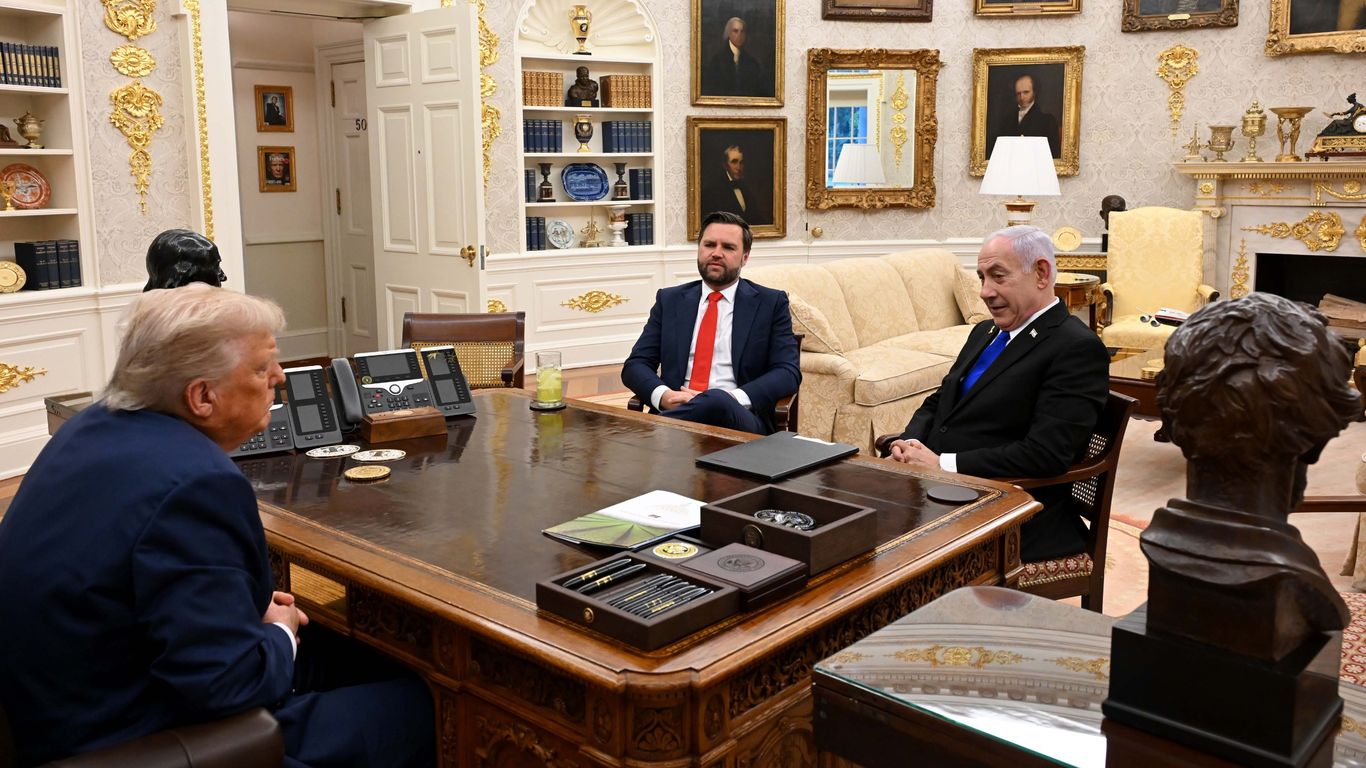Uncertainty in U.S. Attorney's Office

Introduction
The nomination of Alina Habba for U.S. attorney has been yanked by President Trump, allowing her deputy, Desiree Leigh Grace, to serve in the acting capacity. This move by the federal district court in New Jersey has raised questions and concerns about the future of the U.S. attorney's office and the impact on ongoing cases.
Key Details
The sudden decision to withdraw Habba's nomination has left many wondering why. While it is not uncommon for presidents to change nominations, the timing and reasoning behind this move are unclear. Some speculate that it could be due to political reasons, while others believe it may be related to ongoing investigations or potential conflicts of interest.
The appointment of Desiree Leigh Grace as acting U.S. attorney has also raised eyebrows. Grace, who previously served as Habba's deputy, has limited experience as a prosecutor and has never held a top leadership role in the U.S. attorney's office. This has led to concerns about her ability to effectively lead the office and handle high-profile cases.
Impact
The sudden change in leadership has created uncertainty and potential disruptions in the U.S. attorney's office. Ongoing cases and investigations may be affected, and the delay in appointing a permanent U.S. attorney could hinder the office's ability to effectively carry out its duties. This decision also sends a message
About the People Mentioned
Alina Habba
Alina Saad Habba, born on March 25, 1984, in Summit, New Jersey, is an Iraqi-American lawyer who has made significant strides in the legal world. She is currently the managing partner of Habba, Madaio & Associates LLP, a role she assumed after establishing her own firm in 2020[1][3]. Before pursuing law, Habba worked in the fashion industry, notably at Marc Jacobs, which showcases her diverse career path[1]. Habba earned her Juris Doctor degree from Widener University Commonwealth Law School in 2010. Following her graduation, she clerked for New Jersey Superior Court Judge Eugene Codey Jr., gaining valuable experience in the legal system[1][2]. Her career has been marked by work in prestigious law firms and her role as a law clerk, which laid the foundation for her future success[2]. In 2021, Habba became a legal spokesperson for former U.S. President Donald Trump, handling high-profile cases such as Trump's lawsuit against the New York Times and his niece, Mary Trump[1][3]. Her involvement in these cases has drawn significant public attention and highlighted her legal expertise. As of recent events, Alina Habba has been named the Acting U.S. Attorney and Special Attorney to the United States Attorney General for the District of New Jersey, overseeing federal criminal prosecutions and civil matters in New Jersey[4]. Additionally, in December 2024, Trump appointed her as his counselor to the president[3]. These roles underscore her influence and role in the legal and political landscape. Throughout her career, Habba has demonstrated resilience and legal acumen, making her a notable figure in both the legal community and the public eye. Her journey from fashion to law and her rise to prominence in high-profile legal cases have been significant aspects of her professional trajectory.
About the Organizations Mentioned
Federal District Court in New Jersey
## Overview The United States District Court for the District of New Jersey is one of the oldest and most significant federal trial courts in the United States. Established by the Judiciary Act of 1789, it is the second oldest federal district court in the nation[7]. The court operates at three main locations: Newark, Camden, and Trenton, reflecting its statewide jurisdiction and accessibility[6]. ## What It Does The District Court in New Jersey is a federal trial court that handles a wide range of civil and criminal cases, including matters related to constitutional law, intellectual property, securities, antitrust, and civil rights. It is the venue for federal prosecutions, lawsuits between parties from different states, and cases involving federal law. The court also plays a central role in the federal probation and pretrial services system, overseeing rehabilitation, supervision, and risk assessment for offenders[2]. ## Historical Significance The court’s first session was held on December 22, 1789, just months after the federal judiciary was established[1]. Its judges have included prominent legal figures—some later served on higher courts, such as the U.S. Supreme Court (Samuel Alito, Jr.) and the Third Circuit Court of Appeals[1]. Several U.S. Attorneys for New Jersey, including former Governor Christopher J. Christie, have gone on to significant public service roles[1]. The Historical Society of the District of New Jersey preserves and celebrates this rich legal heritage, offering resources for scholars and the public[4]. ## Key Achievements and Innovations The District Court has been a leader in judicial administration and technology. In the 1990s, it introduced “enhanced supervision” for probationers, pioneered leadership development programs for officers, and adopted new technologies like the sweat patch for drug testing[2]. The court was also among the first to implement electronic case filing, streamlining operations and improving transparency for litigants and the public. ## Current Status Today, the Distric

















